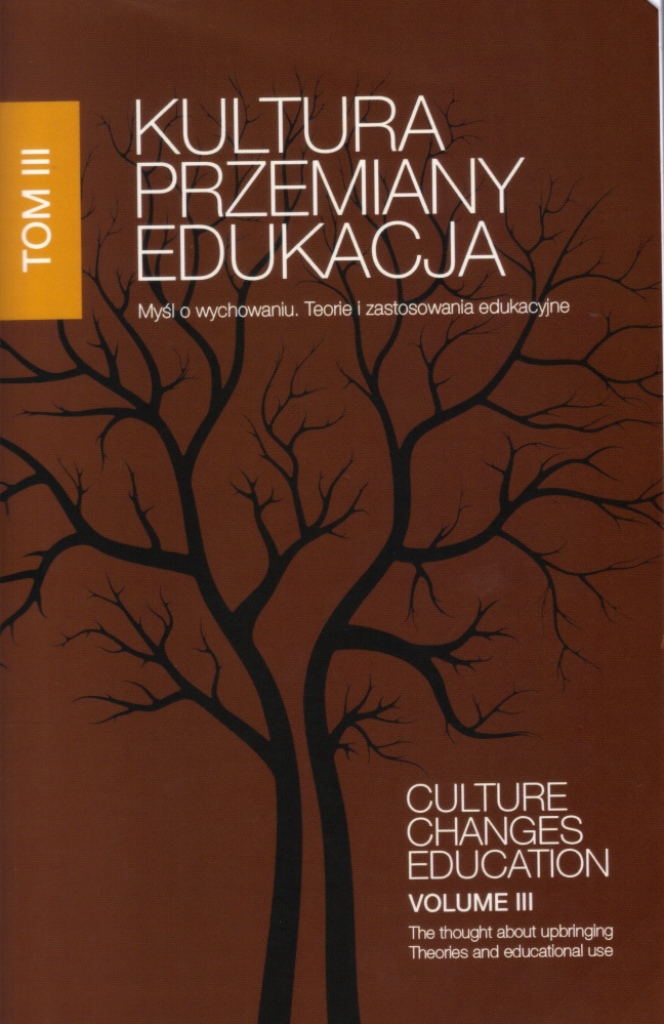Przemoc wobec seniorów we współczesnej rodzinie – wybrane aspekty (komunikat z badań)
DOI:
https://doi.org/10.15584/kpe.2015.3.10Słowa kluczowe:
starość, starzenie się, przemoc, przemoc fizyczna, psychiczna, zaniedbanieAbstrakt
Żyjemy w specyficznych czasach epoki ponowoczesnej charakteryzującej się z perspektywy jednostki pośpiechem i życiem chwilą z naciskiem na doznawanie chwilowych przyjemności, konsumpcjonizmem, przekładającym się na interakcje i stosunki międzyludzkie (przedmiotowe podejście do drugiego człowieka zgodnie z regułą maksymalnej użyteczności). Oba powyżej wzmiankowane aspekty wskazują, iż kategoria ludzi starych stanowi swoisty problem, tak dla państwa, jak też dla społeczeństwa, co znajduje odzwierciedlenie w rodzinie, a czego dobitnym wykładnikiem jest przemoc stosowana przez najbliższych względem seniorów. Analiza wyników przeprowadzonych badań umożliwia wyprowadzenie następujących wniosków w obszarze przemocy domowej względem osób w jesieni życia:
– zjawisko to nie jest zróżnicowane w kontekście doświadczanych przez seniorów jego form (pomijając kontekst seksualny) – przemoc fizyczna doświadczana jest zarówno przez kobiety, jak też mężczyzn, zaś seniorzy częściej niż seniorki doznają przemocy psychicznej i ekonomicznej (przy czym istnienie tej ostatniej nie jest uwarunkowane statusem materialnym);
– częściej dotyczy ona mieszkańców wsi i osób funkcjonujących w rodzinach wielopokoleniowych, co wydaje się być zrozumiałe;
– jej sprawcy – to najczęściej syn, w drugiej kolejności małżonek, małżonka (partner /partnerka).
Warto zaznaczyć, iż seniorzy przejawiają aktywność w przeciwdziałaniu zachowaniom względem własnej osoby charakterystycznym dla omawianego zjawiska – zwracają się o pomoc nie tylko do osób najbliższych z rodziny, ale również do fachowców (policja, pracownik miejskiego ośrodka pomocy społecznej itp.), przy czym częściej dotyczy to mieszkańców miast niż wsi; seniorów ze średnim wykształceniem niż podstawowym i zasadniczym zawodowym.
Rozwiązań tego problemu należy upatrywać nie tylko na gruncie regulacji prawnych bądź też funkcjonowania konkretnych instytucji (policja, miejski ośrodek pomocy społecznej itp.) czy organizacji pozarządowych (Niebieska Linia), ale również w edukacji i wychowaniu młodego pokolenia do starości celem implementacji przez nie, iż potencjalnie każdy z nas doświadczy starości.
Downloads
Bibliografia
Adamski F., Rodzina. Wymiar społeczno-kulturowy, Kraków 2001.
Atchley R.C., Retirement: Leaving the world of work, „The Annals of the American Academy of Political and Social Science” 1982.
Atchley R.C., Social Forces and Aging: An Introduction to Social Gerontology (wyd. 6), Belmont, CA: Wadsworth 1991.
Badura-Madej W., Dobrzyńska-Masterhazy A., Przemoc w rodzinie. Interwencja kryzysowa i psychoterapia, Kraków 2000.
Bauman Z., Ponowoczesność jako źródło cierpień, Warszawa 2000.
Durkheim E., Samobójstwo. Studium z socjologii, tłum. K. Wakar, Warszawa 2006.
Gajda J., Kodeks rodzinny i opiekuńczy. Komentarz, Warszawa 1999.
Giza-Poleszczuk A., Rodzina a system społeczny. Reprodukcja i kooperacja w perspektywie interdyscyplinarnej, Warszawa 2005, Gdańsk 1990.
Halicka M., Halicki J. (red.), Przemoc wobec ludzi starych, Białystok 2010.
Kawula S., Kształty rodziny współczesnej. Szkice familiologiczne, Toruń 2005.
Leszczyńska-Reichert A., Człowiek starszy i jego wspomaganie – w stronę pedagogiki starości, Olsztyn 2010.
Merton R.K., Teoria socjologiczna i struktura społeczna, tłum. E. Morawska, J. Wertenstein-Żuławski, Warszawa 1982.
Pędich W., Ludzie starzy, Warszawa 1996.
Pędich W., Jakubowska D., Kunda T., Pielęgniarstwo geriatryczne, Warszawa 1983.
Pospiszyl I., Razem przeciw przemocy, Warszawa 1999.
Skoczyńska-Prokopowicz B., Expectations of older people towards educational offer of the third age university [w:]Managing of the education process in a higher school, red. S. Popek, J. Świda, Jarosław 2012.
Szacki J., Historia myśli socjologicznej, Warszawa 2002.
Szatur-Jaworska B., Błędowski P., Dzięgielewska M., Podstawy gerontologii społecznej, Warszawa 2006.
Szlendak T., Rodzina [w:] Encyklopedia socjologii, t. 3, red. Z. Bokszański, K. Gorlach, W. Kwaśniewicz, E. Mokrzycki, J. Mucha, A. Piotrowski, T. Sozański, A. Sułek, J. Szmatka, W. Wincławski, Warszawa 2000.
Sztompka P., Socjologia. Analiza społeczeństwa, Kraków 2002.
Tyszka Z., Rodzina we współczesnym świecie, Poznań 2002.
Wiśniewska-Roszkowska K., Gerontologia, Warszawa 1987.
Zabawa M., Przemoc wobec osób starych w rodzinie, praca magisterska, promotor: E. Markowska-Gos, Uniwersytet Rzeszowski, Wydział Pedagogiczno-Artystyczny, Rzeszów 2013.
Zawadzka D., Misiak D., Starość jako ostatni etap życia człowieka, „Edukacja Dorosłych” 2006, nr 3, s. 26.
Ustawa z dnia 29 lipca 2005 r. o przeciwdziałaniu przemocy w rodzinie (DzU 2015, poz. 1390).
http://dps.pl/domy/index.php?rob=radar&dzial=12&art=881
http://www.niebieskalinia.pl/przewodnik_ustawa/poradnik__eksperci_radza/01._Jerzy_Mellibruda.pdf
http://www.niebieskalinia.info/index.php/przemoc-w-rodzinie/8-rodzaj-przemocy
http://statystyka.policja.pl/st/wybrane-statystyki/przemoc-w-rodzinie/50863,Przemoc-w-rodzinie.html
Pobrania
Opublikowane
Jak cytować
Numer
Dział
Licencja
Prawa autorskie (c) 2015 KULTURA – PRZEMIANY – EDUKACJA

Utwór dostępny jest na licencji Creative Commons Uznanie autorstwa – Bez utworów zależnych 4.0 Międzynarodowe.


